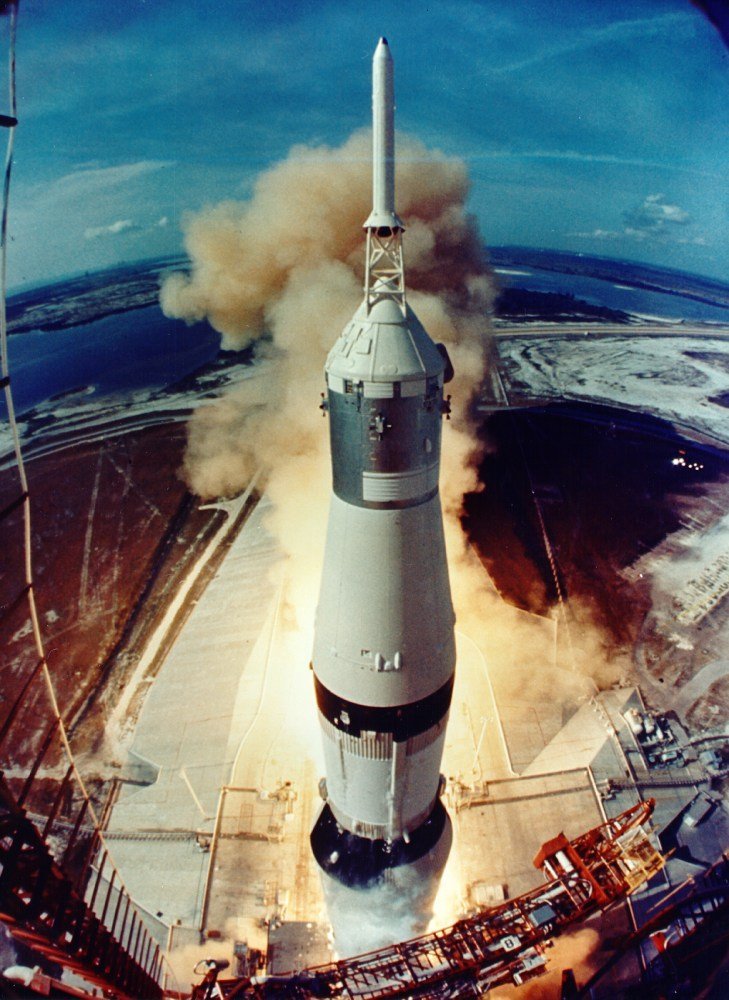As the anniversary of the Apollo 11 moon landing approached last week, I found myself wondering whether we, as a nation, are losing one of our greatest strengths: the ability to be aspirational. To believe not only in our own ability to achieve ambitious goals, but also in our country’s ability to do so.
Regardless of where you stand on the political spectrum, it should be obvious that we are living in a world dominated by fear.
Franklin D. Roosevelt would understand. He would also tell us to get over it.
When he famously intoned, “The only thing we have to fear is fear itself,” he was imploring Americans not to continue letting their fears make things worse. That’s especially appropriate again today, when we are on the cusp of artificial intelligence breakthroughs that will dwarf the technological leap that took Neil Armstrong and Buzz Aldrin to the moon in 1969.
I understand the fears that artificial intelligence generates and the growing lack of trust in Big Tech. But this is no time to slam the brakes on the next Big Thing in technology. That would only enable one of our global competitors to dictate the future.
Rep. Ro Khanna, D-Santa Clara, believes the failure to offer a vision of how America can win is the biggest missing element in today’s presidential election.
“I believe we are at the epicenter of a technology revolution that will profoundly change the world,” Khanna said Thursday.
“It’s incumbent on us to have a vision of what this new technological age will look like. We have to start looking beyond the bottom line of profits and determine what it will take for us to win the 21st century, what it will take to provide the jobs we need for the 21st century, and what it will take for America to have a framework for protecting our values for the 21st century. These are the three big issues that need to be addressed that are not being addressed.”
If you think smartphones and social media changed the world, hold onto your hat. Artificial intelligence will create a technological revolution that, when coupled with globalism, will transform every aspect of society and the economy. Within the next decade we will begin to see see major shifts in the fields of medicine, education, manufacturing and transportation. In terms of scale, think of how the industrial revolution transformed the agrarian age. Then double the impact.
“It’s imperative that our political and tech leaders recognize the challenge and set a framework for how we are going to deal with the resulting issues,” said Khanna. “We have to make sure that Americans’ liberty and privacy are protected.”
That requires that our political and tech leaders learn the lessons of the current social media privacy disaster. Shockingly, 15 years after Facebook was launched, the United States remains the only major developed nation without fundamental online user safeguards.
Fortunately, here in the Bay Area, the Stanford Institute for Human Centered Artificial Intelligence is already at work, bringing together leading thinkers across multiple fields with the intent of assuring artificial intelligence “serves the collective needs of humanity.”
The institute’s co-director, Fei-Fei Li, understands what’s at stake. In a “Behind the Tech” podcast earlier this month, she said “Whenever humanity creates a technology as powerful and potentially as useful as AI, we owe it to ourselves and to future generations to make it right.”
Li and Khanna know there’s much work to be done.
“We’re not doing nearly enough to invest in the future,” said Khanna. “Our federal investment in science and technology is way down from the post-Sputnik era.”
It’s not just a financial investment, it’s a workforce investment. “We’re hopeless on immigration policy. Even Republicans will tell you that immigration is essential for economic growth. And we need to attract the best scientists and engineers from around the world if we are to create the jobs of tomorrow. If we maintain our technology edge we can write the rules for how the world will work. But if we allow China to gain the edge, we may lose the values we cherish.”
Maintaining America’s technological edge requires an optimistic, positive vision of a future that’s linked to a concrete plan for what it will take for America to succeed. It also requires a deep thinker who has the trust of the American people.
None of the current Democratic candidates for president nor the current occupier of the White House demonstrate those qualities.
But one could emerge. After all, we’ve made the transition before.
Shortly after President John Kennedy announced his moon challenge, his predecessor, Dwight Eisenhower, said, “Anybody who would spend $40 billion in a race to the moon for national prestige is nuts.”










